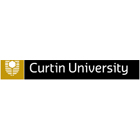Bachelor of Engineering (Civil and Construction Engineering) (Honours)/Bachelor of Science (Mining)
Bachelor of Engineering (Civil and Construction Engineering) (Honours)/Bachelor of Science (Mining)
This course is an extended, optional program for engineering students, in which you will learn an excellent blend of civil and construction engineering fundamentals and gain the practical skills required for professional practice. In addition to developing civil and construction engineering skills, you’ll gain detailed knowledge of mining engineering that…
Categories
COURSE DESCRIPTION
This course is an extended, optional program for engineering students, in which you will learn an excellent blend of civil and construction engineering fundamentals and gain the practical skills required for professional practice.
In addition to developing civil and construction engineering skills, you’ll gain detailed knowledge of mining engineering that will extend your expertise for careers in the mining industry.
Building on and complementing your studies in civil engineering, you’ll learn aspects of surface and underground mining, materials handling and mining methods.
You’ll also complete at least 12 weeks (or equivalent) of exposure to professional engineering practice, to satisfy professional requirements. This requirement can be met through appropriate work experience or a combination of technical and non-technical activities.
How this course will make you industry ready
You’ll complete at least 12 weeks (or equivalent) of exposure to professional engineering practice, through appropriate work experience or a combination of technical and non-technical activities.
What jobs can the Civil and Construction Engineering and Mining lead to?
Careers
Civil engineer
Construction engineer
Mining engineer
Geotechnical engineer
Site engineer
Structural engineer.
Industries
Construction
Mining
Consulting
Contracting
Government
Transportation
Water supply.
Further study
Master of Engineering Management
Master of Philosophy
Doctor of Philosophy.
What you’ll learn
Demonstrate a conceptual understanding of fundamental science, mathematics, data analytics, information science, and computing underpinning the broad field of engineering
Solve complex civil, construction and mining engineering problems of industrial and societal significance through the application of discipline-specific and integrated bodies of knowledge, design and sustainability principles
Make decisions related to the design and implementation of solutions to engineering problems in a safe, ethical, and climate-responsible manner adhering to legal and professional standards and through respectful partnerships with local First Peoples and other diverse cultures as globally responsible citizens
Apply systems thinking for innovative solutions to global civil, construction and mining engineering challenges, discern knowledge and undertake applied research in a discipline of civil and construction engineering
Select and use current and emerging knowledge and technologies to develop and communicate effective and innovative engineering solutions to complex problems
Demonstrate lifelong learning habits, teamwork and leadership abilities, project management skills, and the ability to identify opportunities for career-wide professional growth, necessary for advancing a career in engineering and beyond
REQUIREMENTS
Students from different countries should have qualifications equivalent to Australian Year 12 and a scaled mark of at least 50 in English, Literature, or English as an Additional Language or Dialect.
IELTS (International English Language Testing System) – Listening, Reading, Writing, and Speaking – 6.0; Overall band score 6.5; TOEFL Score: 79 (overall); Reading 13; Listening 13; Speaking 18; Writing 21; Pearson Test of English – Listening, Reading, Writing, and Speaking – 50; Overall band score 58; TOEFL (Test of English as a Foreign Language) and PBT (Paper Based Test) – 570 and 4.5 in TWE; C1 Advanced Formerly known as Cambridge English: Advanced (CAE) 176 with 169 in Reading, Writing, Listening and Speaking. C2 Proficiency Formerly known as Cambridge English: Proficiency (CPE) 190 with 176 in Reading, Writing, Listening and Speaking.
EDUCATIONAL INSTITUTION
Curtin University is Western Australia’s largest and most culturally diverse university with Australia’s third largest international student population. Around 60,000 students from more than 130 countries study a Curtin degree, at locations including Perth, Margaret River, Kalgoorlie, Sydney, Malaysia and Singapore. Our cultural diversity adds a rich and valuable dimension to the campus atmosphere, preparing all graduates to live and work effectively in an increasingly global environment. We offer a range of industry-aligned undergraduate and postgraduate courses in business, humanities, health, engineering and related sciences. We also have a long-standing focus on Aboriginal and Torres Strait Islander education and culture, supported by our Centre for Aboriginal Studies.Curtin is widely recognised for its practical research that is focused on solving timely, real-world problems. In recent years our research activity has grown significantly, driving our rapid rise up the international university rankings.As a university that never settles, we will continue to develop existing partnerships and establish new ones in areas relevant to our research and teaching.




